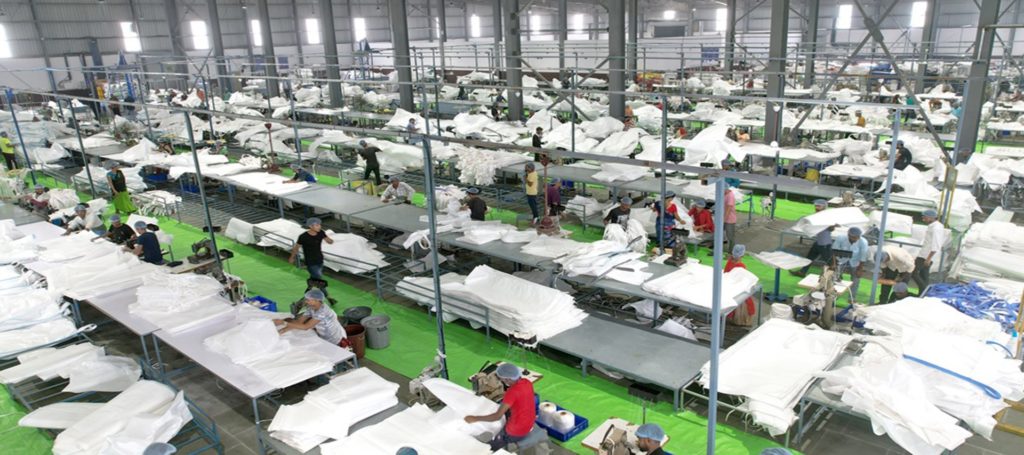The industrial packaging industry is rapidly evolving as businesses seek smarter, more sustainable solutions for packaging their products. Industrial packaging bags, a crucial component in this sector, are experiencing significant transformations due to advancements in technology, environmental consciousness, and consumer demands. As industries expand globally, these trends play a crucial role in shaping the future of packaging.
In this blog post, we will explore the top trends in industrial packaging bags, highlighting the changes that are redefining the packaging landscape for various industries. Let’s dive in!
The Move Towards Sustainable Packaging Solutions
Sustainability has become a top priority for industries across the globe, including the packaging sector. As awareness of environmental issues increases, companies are under pressure to adopt eco-friendly packaging options. The demand for sustainable industrial packaging bags is rising as companies aim to reduce their carbon footprints and align with global sustainability goals.
The Role of Biodegradable and Compostable Materials
One of the most notable trends in the industrial packaging bag industry is the increasing adoption of biodegradable and compostable materials. Packaging manufacturers are shifting towards using eco-friendly materials like biodegradable polymers, plant-based plastics, and natural fibers. These materials break down more easily in the environment, reducing the overall waste burden.
Industries such as food packaging, retail, and even e-commerce are transitioning to biodegradable bags that leave a minimal environmental footprint. As a result, manufacturers are investing in research and development to create innovative packaging materials that offer durability while being kind to the planet.
Recyclable Packaging Bags
Recycling is another important trend shaping the future of industrial packaging bags. Packaging that is recyclable reduces waste and helps businesses meet their sustainability targets. Companies are focusing on producing packaging bags that can be efficiently recycled after use. The push for recyclable packaging is being driven by increased consumer awareness and regulatory policies that require businesses to meet specific recycling standards.

In response, companies are implementing better recycling systems and focusing on making their industrial packaging bags from recyclable plastics and paper. This trend is expected to continue as the world moves toward a circular economy, where materials are reused and recycled as much as possible.
Technological Innovations in Packaging
The integration of technology in packaging is not only changing the way products are packaged but also how businesses manage their packaging processes. Technological advancements in packaging machinery and materials are driving efficiency, product protection, and cost-effectiveness.
Smart Packaging Solutions
One of the most exciting trends in industrial packaging bags is the development of “smart packaging.” Smart packaging includes features such as QR codes, RFID tags, and sensors embedded into the packaging. These technologies allow businesses to track products, monitor conditions during transport, and even offer consumers additional product information.
For instance, in industries like pharmaceuticals, food, and electronics, smart packaging can provide temperature-sensitive data or warn users if the product has been tampered with. These innovations are improving both supply chain management and the overall customer experience.
Automation and Robotics in Packaging Processes
As industries continue to scale, automation in the packaging process is becoming more widespread. Automated packaging lines, which use robotics and machine learning, are improving the efficiency and speed of packaging operations. These systems can handle the packaging of industrial bags, filling, sealing, and even labeling with precision and minimal human intervention.
Automation helps reduce labor costs, improve consistency, and eliminate human error, resulting in better overall quality control. In turn, businesses can streamline operations and focus on innovation, allowing for faster production and reduced packaging costs.
Customization and Branding Opportunities
Packaging plays a vital role in product presentation and branding. As competition increases, businesses are seeking ways to make their products stand out from the crowd. Industrial packaging bags are no exception. Companies are increasingly opting for customizable packaging solutions that align with their brand image and enhance customer perception.
Custom Printing and Designs
Custom printing on industrial packaging bags has become a significant trend. Companies are incorporating vibrant colors, logos, and marketing messages onto their packaging to capture the attention of consumers. This customization helps differentiate their products and promotes brand identity.
Custom-designed packaging can also provide useful information, such as instructions for use, ingredient lists, or sustainability certifications. This not only improves the user experience but also adds value to the packaging, making it a tool for brand promotion.
Flexible Packaging Solutions
Another growing trend is the use of flexible industrial packaging bags, which offer versatility and convenience. Flexible packaging can be customized to fit products of various shapes and sizes, making it ideal for businesses in industries such as food, beverage, and consumer goods.
Flexible bags are lightweight, cost-effective, and easy to transport, making them an attractive option for companies looking to reduce shipping costs. Additionally, these bags can be designed with features like resealable closures, spouts, or easy-open tabs, offering convenience for both businesses and consumers.
Enhanced Durability and Protection
As industrial packaging bags are used to protect products during transit, the durability of these bags is critical. Companies are investing in packaging materials that provide superior protection to products, especially in industries where product safety and quality are paramount.
Multi-Layer Packaging Bags
Multi-layer industrial packaging bags are gaining popularity due to their enhanced durability and protective qualities. These bags are made by combining different materials such as polyethylene, polypropylene, or nylon, creating a multi-layer structure that offers superior resistance to punctures, tears, and moisture.
In industries like agriculture, chemicals, and pharmaceuticals, multi-layer packaging bags provide added security, ensuring that products remain intact and uncontaminated during storage and transportation. This trend is expected to continue as businesses prioritize product integrity and safety.
Protective Linings for Sensitive Products
Certain products, especially those sensitive to moisture, light, or air, require extra protection. Packaging bags with protective linings are becoming increasingly common in industries like food packaging and pharmaceuticals. These bags are designed to keep products safe from environmental factors, such as humidity or UV rays, that could damage the product.
For example, some food products, like grains or snacks, require bags with moisture barriers to maintain freshness. Similarly, pharmaceutical companies use packaging bags with special coatings to ensure that medications are protected from light or oxygen exposure.
The Rise of E-Commerce and Its Impact on Packaging
The growth of e-commerce has also significantly impacted the industrial packaging bag industry. With the increasing number of online transactions, there is a higher demand for packaging that ensures safe delivery of products to customers.
E-Commerce-Friendly Packaging Solutions
E-commerce businesses require industrial packaging bags that can protect products during long transit times while being lightweight and cost-effective. Packaging manufacturers are designing bags that are specifically tailored to meet the needs of online retailers, with features like tamper-proof seals, easy-to-open flaps, and sturdy designs to ensure that products arrive in perfect condition.
These packaging solutions also need to be environmentally friendly, as consumers are becoming more conscious of the ecological footprint of their purchases. As a result, companies are opting for recyclable or biodegradable e-commerce packaging to align with consumer preferences and sustainability goals.
Conclusion
The future of industrial packaging bags is being shaped by a combination of sustainability, technological innovation, customization, and the rise of e-commerce. As businesses look for ways to improve efficiency, reduce costs, and enhance customer experience, these trends are revolutionizing the packaging industry.
From biodegradable materials to smart packaging solutions, industrial packaging bags are becoming more functional, efficient, and environmentally conscious. By staying ahead of these trends, businesses can not only meet the demands of the modern market but also position themselves as leaders in sustainable and innovative packaging.
